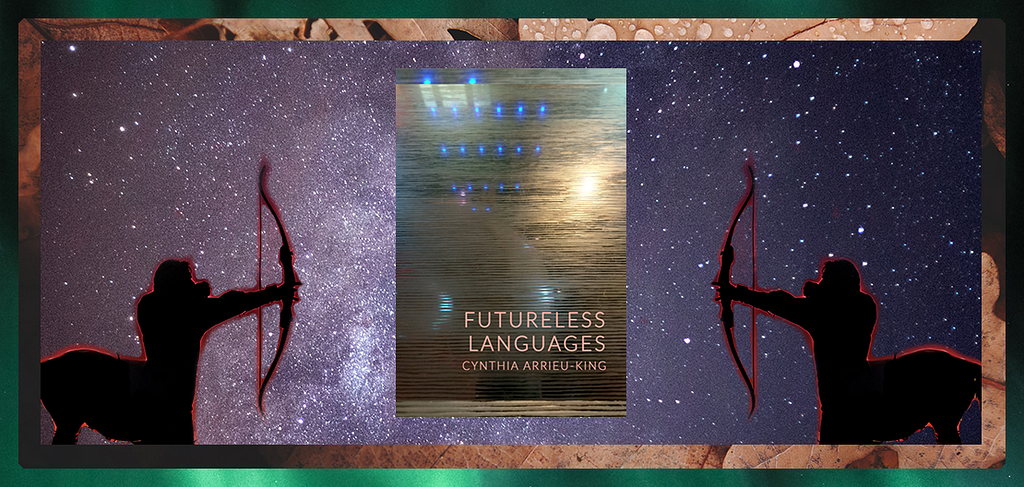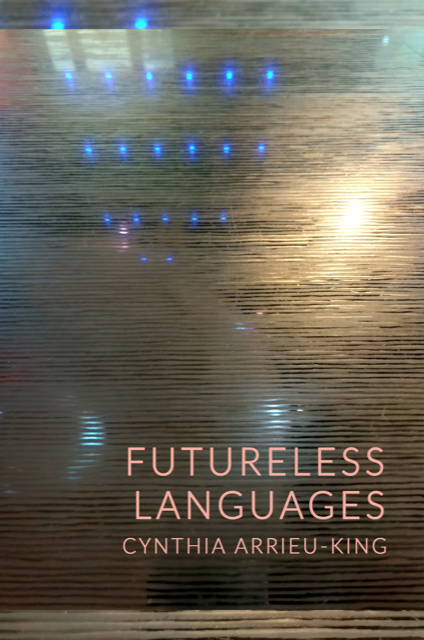
Oh, Sagittarius. We think of you as the Archer, a centaur soaring with muscular beauty through the sky, farseeing, wise. We think of your arrows as pointing in a direction. Like the lampposts in Narnia, ushering us into new countries that need our courage and our belief.
We often fail to realize that you can also be a weathercock, perched on the top of a crumbling roof, swinging dizzily in the wind, your arrow spinning and tilting and possibly, in a hearty gale, even flinging you briefly into the sky, only to crash, rusted and bent, into the late Autumn landscape of mud and wet leaves. We often fail to see that your freedom and purposefulness masks an almost compulsive need to move that can very often completely defeat the purpose of motion, unless kinesthetics are the only aesthetics (but Sag is not often disciplined enough for dance), unless life is all journey and no destination, which, let us be honest with ourselves and you as the year dies, it is not. We are all going to end up somewhere. We are all somewhere. We love you, Sagittarius, for wanting that somewhere to be on Alpha Centauri, but could you possibly make something resembling a game plan? Please?
For those of you not familiar with Sagittarius (I was raised by one and have long been aware of their ways), I offer you these two exemplars of the type:
Emily Dickinson.
Miley Cyrus.
Reconcile that, embrace that each of these is completely Sagittarius without being offended, and you will understand everything. Sagittarius is known for being a free spirit, an experimenter, sometimes an iconoclast. Sagittarius, mutable fire, flickering, changing, strange and lovely, formally innovative (I’m not going to make the extended argument about how Emily D.’s white dresses and innovative dashes heralded Miley C.’s white undies and breathless pauses in the ridiculous yet compelling “Wrecking Ball” video, but I promise if you read The Complete Poems seventeen times, as I have, and then watch the video a dozen, it will all make sense). Sagittarius can also be indecisive/random/full of shit/confused/subject to really poor life choices. Bref: Sag is a weirdo. A slightly ingenuous, often haphazard, breathless, delightful, and possibly clueless weirdo. Sag, like Leo, is willing to go all the way to the mat with a crazy idea, but unlike Leo, this implies no major commitment on Sag’s part. They will be on, another day, to other things, and may have even forgotten that taint-exposing Wrecking Ball moment, or that love they couldn’t live with because Life is over there — Behind the Shelf. This is the way of the Sagittarius. They worship The Search, and sometimes they forget what they’re even searching for.
The thing to keep in mind here is that Sag’s weirdness and haphazardness and apparent out-of-control spinning (on a bad day) is meant to be in the service of actually locating and sharing a universal Truth: the purpose within us that transcends the boring and the petty and the unkind. Sag wants to find, as Aquarius seeks to find, that place of altruistic innovation that is as pure and far-reaching as the stars. If they occasionally end up in the mud — or, in Cyrus’s case, in the hospital with a swollen tongue from some wanton banana slug licking — that is The Price We Pay. The price we pay for The Search.
The great Aquarius E.L. Konigsberg once wrote that the search often proves more profitable than the reward, and that is true. That is the lesson most of us need to learn (Leo, Cap, Cancer, Virgo, I’m looking at you! Try to get your eyes off the prize for one sec, especially if it’s a Cracker Jack prize). For Sagittarius, however, it’s the other way. Natives of this sign need to learn to appreciate the reward (which will necessitate learning to identify the reward, which will necessitate doing a thing called goal-setting that seems so, so limiting to Sagittarius when THE SKY IS THE LIMIT but hey, Sag, that’s what Icarus said, so cool your jets for sec, mmmkay?). They need to learn that The Search may be amazing and cosmic and serendipitious and all that other great stuff, but if all you do is cast about and charge off in seven directions at once (or even in quick succession), you’re not going to get anywhere that great. Sagittarius needs to learn that it’s not all a grand flight through the stratosphere; sometimes it’s a boring drive up the 5, but nevertheless, there are things to be learned, especially if we make time to take stock once we get there.

The title of this installment of our column comes from Cynthia Arrieu-King’s poem “Futureless Languages,” from the eponymous collection, just out from Radiator Press in time to see this year die, and it is Sagittarius.
One of the most insightful Sagittarii of all time, Madeleine L’Engle, wrote that joy can only come after suffering. The work of Sagittarius is to learn how to go through suffering and yet return to joy, how to sit still in the place of contemplation without abandoning the place of awareness. That is also the work of Arrieu-King’s book, which does, in fact, take off in many directions at once: through lulling lyric and stark prose poem, through airports and islands and visits to Iceland, through mourning for a lost friend and through discomfort with the structural hierarchies of the world, and which yet maintains that focus on listening to the inner ear that so characterizes Emily Dickinson’s poetry, a perfect fidelity to the subjective and yet universal voice. A vulnerable intelligence.
There is something of the travelogue in this book, something that makes a reader feel they are on a journey, with the author, seeing through the lens of compassionate other eyes, one step removed from the hectic reality of life in the world in 2018, one step calmer and more enduring. The work begins with an epigraph from Alice Notley: “Abolish these categories of pain/(or is it love)/Let it all be one pain/Pain swallows itself, dies like a star” and yes, this is the work we all have to do, in Sagittarius, in the waning of the year: find a way to abolish these categories. It is a work of synthesis. The leaves are returning to soil. We have forgotten, many of us, how to do this work, how to let it be done, how to abide, how to accept. And that is not surprising: humans (and Sagittarius) are impatient. Humans (and Sagittarius) are distracted. Humans (and Sagittarius) can be far too glib in their righteousness, far too sure that it’s time to about face and charge.
Futureless Languages, paradoxically, is about creating the space for language to have a future, and also, in its enveloping understatement, about all the languages that rely on context and adverbs rather that tense shifts to visit the future. More broadly, it is about language and the thought processes language so clumsily delineates, about the metaphor of language as being (which it so clumsily delineates). It is, Sagittarius, about looking critically at The Search, rather than just charging off down the path. You should check it out. For example, in a vignette about the author’s mother’s encounter with a Nazi officer: “The salve not his thoughts exactly, but that he knew he could stop, that day, his part of the machine.”
To stop, that day, your part of the machine. What does that look like? What harms can it unravel, or pause, or cause to be held up to some greater machine, the machine that is the impetus behind The Search we’re all constantly charging off on, the machine that is quietly, almost imperceptibly, humming behind the mechanisms we loudly wield as arm and armor. Or, as Arrieu-King writes, reflecting on the Americanness of Darth Vader, “I do things to undermine our insanity.”
What do you do, Sagittarius, to undermine it? What part of The Search is sane?
Much of this book is delectation in the pleasure of being en visite, of encountering the world as less homely/assimilating as our America is supposed to be, of adopting the perspective of distance: “Why is it easier to learn or do than keeping your hands off this world?” and yet, not afraid of voluptuousness and of beauty, “A wild patience has taken me this far/This dream ever had a heart underground.” The heart of the dream like the roots of the trees (that are so rare in Iceland). Our own feet likewise. The wars of this earth, wars always in the name of The Search, Sagittarius (and humans, so be warned of their folly!), and how impossible comprehension is: “that the word he says means war and erupt and disrupt/how his language can stretch./I’ve been at words this whole time,/spelling in my sleep.” How language can glance like a gaze or glance like a blow. How verbs cannot themselves always replicate meaning. How this does not make ugliness despite its artlessness: “To souvenir an imperfect but more actual freedom. To hear a language that came back into use from the villages after a colonizer’s language was pushed out. To hear something old, ethereal, musical from every person’s mouth. To turn a bright thing over in the mind, the way a poem gets repeated to oneself again and again.”
Reading Futureless Languages is a sense of grief and a sense of the darkness that descends at this time of year in the Arctic Circle, a sense of living within dim light, a tangible charcoal color of air, and so, like the claims about language and its most valued nouns, a greater precision and sensitivity to it, a greater joy at “all the disappearing petals/bursting and fading/this’ll be your story broken/like back porch light on/a piece of infrastructure” — note your story is not the (infra)structure but the illumination on it, note that the direction of the rays are up to you. Note that light cannot be pierced with arrows or broken with swords. Note, Sagittarius, that The Search precludes the acceptance of the broken things upon which we shine our stories. Of our short wicks and smelly tallow. Of our dim but beautiful lives.
Futureless Languages is a reminder that the “here” in this poem is not something you have to search for. That “here” already is, always where we are:
and here, there is light forever:
hours roll like foil
and even midnight sheets the sky, all night a light like winter
an idea still burning behind the mountain.
And here, there is light forever. Consider that. Consider, if here is always where you are, the sentence: “She said the most radical thing she ever did was stay put,” Arrieu-King writes in the same poem we began with. And it is, Sagittarius. It is the most radical thing.
Happy Birthday, Sagittarius. Bring your beautiful sanity to undermine the pettiness and chaos of our age. Turn the bright thing over in your mind. Let your ideas still burn. And remember, as the hemisphere shuts down for winter, that the tree with its deep roots far outlasts the bird.
In My Mind I Already Live in Another Country: Real Chaos Astrology, vol. 12 was originally published in Anomaly on Medium, where people are continuing the conversation by highlighting and responding to this story.
